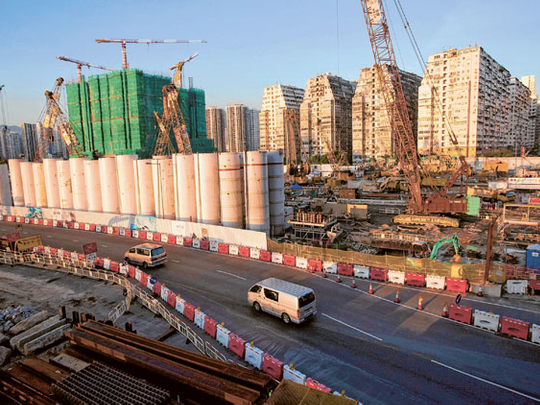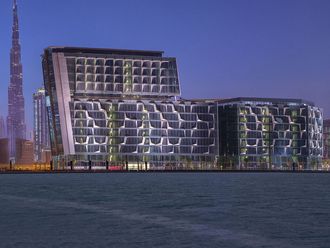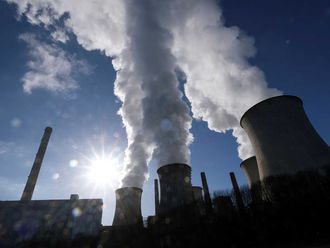
Hong Kong: Hong Kong Financial Secretary John Tsang predicted a "soft landing" for the real estate market and said the city will keep its currency peg to the dollar, blamed for helping drive home prices up about 70 per cent.
"There have been ups and downs but the peg has come through for us," Tsang said in Chicago. As for the property market, "transactions have fallen and prices are starting to trend down slowly," he said.
The US dollar's 6.8 per cent decline against the yuan in the past two years has inflated the cost of imports to Hong Kong and drawn property buyers from China. Home prices have tripled from their 2003 low, prompting a government crackdown on speculation that's caused a three-month drop in new lending.
"The residential market has basically frozen as a result of the curbs and the global downturn," said Alva To, Head of Consulting for North Asia at DTZ, a property broker. "Our surveyors are seeing almost a 60 per cent drop in the number of valuation queries from banks compared with normal times."
Hong Kong's used home sales have slowed, with prices falling for the first time in seven months in July. That's not a "very violent reaction," Tsang said.
The government has imposed measures to address concerns about housing affordability, including raising the down-payment for some mortgages, accelerating land sales and imposing a tax on real estate resold within six months of purchase. Prices have jumped about 70 per cent since the start of 2009. New loans approved fell 10.3 per cent in August from a month ago.
Simple and transparent
Hong Kong's economic cycle still most closely resembles the US's, so the city has no need or intention to change the dollar peg, he said.
"It is simple and transparent," Tsang said. "There's no need for us to make any changes."
William Ackman, founder of hedge fund Pershing Square Capital Management, said this month he's using options to bet that Hong Kong will allow its currency to appreciate. The Hong Kong dollar has been kept at about HK$7.80 versus the greenback since 1983.
One-year implied volatility, a measure of exchange rate swings used to price options, for the Hong Kong dollar climbed to 2.25 per cent from 0.66 per cent a year ago. The jump is the biggest in Asia even as fluctuations anticipated for the Hong Kong dollar are smaller than for the yuan, whose volatility rose to 5.4 per cent from 4.4 per cent, and for the South Korean won, which climbed to 20 per cent from 13.1 per cent.
Linking the Hong Kong dollar to the yuan won't work until the Chinese currency is fully convertible with an open capital account, Tsang said. Dealing with Hong Kong's soaring home prices and inflation are the policy priorities, he said.
Rising inflation
The Hong Kong government said last week that inflation is yet to peak after consumer prices rose 5.7 per cent in August because of higher costs for rents and food. The gains came after a 7.9 per cent increase in July, the biggest in 15 years.
Rising consumer prices coincide with a slowdown in the city's growth. Hong Kong's economy expanded 5.1 per cent in the second quarter from a year earlier, down from 7.5 per cent in the first three months. Growth in the third quarter will probably be between 4 and 5 per cent, Tsang said.
Chief executive Donald Tsang may speak about housing prices in his annual policy address next month, said John Tsang, who isn't related to the city's top official. The chief executive may also talk about the city's wealth gap and its ageing population.
US, EU worries hits city
With Hong Kong's exports about three times to four times the size of its GDP, the city is "very much affected" by events in the US and in Europe, John Tsang, Hong Kong's financial secretary, said.
"The situation in the US is seeing faltering demand," he said. "That is obviously of some concern to us in Hong Kong because we do quite a bit of export to this part of the world. I have a lot of confidence in the creativity and innovation in the US, once the nation has been able to identify a clear direction forward after the political issues have been solved," he said.












